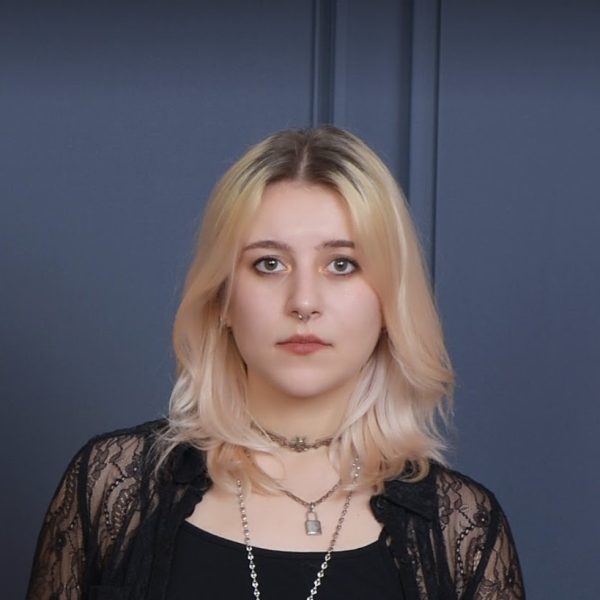During the last few months of the most thoroughly documented genocide in history, oppressed groups from all walks of life took up much of the organizing for Palestinian liberation in the United States. This includes groups standing for Black liberation, women’s liberation, queer liberation and more.
They have illustrated the ways their struggles for liberation are tied together. Yet white environmentalists remain largely silent in the face of this genocide.
White environmentalists must pull it together and use their political power to aid the movement for Palestinian liberation.
The Failings of White Environmentalism
Utah’s extensive history of partnering with Israel includes the exportation $1.1 billion of goods to Israel since 1996. It “ranks 30th among all states in exports to Israel,” according to the Jewish Virtual Library. Israel is Utah’s 25th leading trade partner.
Our dollars and our labor continue to enable the genocidal state of Israel while their ambassadors rub elbows with our legislators. Despite this, Utah’s predominantly white environmental groups have said little to none on the matter.
Alan Gutierrez of Utah Youth Environmental Solutions attributes this apathy to white guilt and ignorance.
“Specifically in Utah, the environmentalists here lack that knowledge and that systemic analysis of how environmental issues are directly connected to Palestine,” Gutierrez said. “And I think it’s also that some of them just don’t care.”
When hosting rallies for pressing issues like the Great Salt Lake, Gutierrez said environmental groups will “search for a diversity speaker. ‘Who’s the closest Black or Brown or Indigenous person we can get up on that stage just for those points?’ But I don’t think a lot of them truly care for what they have to say.”
This hands-over-the-ears approach applies to Palestine, too. Israel’s environmental apartheid includes stealing and depriving resources like water, food and medicine from Palestinian civilians. The settler state burned the olive trees that generations of Palestinian families have cared for. This, in addition to the horrific carpet bombing, has made the land uninhabitable for Palestinians.
“That, immediately, is both a Palestinian struggle, but also an environmental struggle — because the land has been destroyed just to keep pushing this genocide,” Gutierrez said. “And I feel like that’s one thing that white environmentalists specifically need to understand.”
Community Over Palatability
In addition to building understanding, white environmentalists must build restorative relationships with their communities.
“A lot of the environmental [organizations in Utah] are not very community-focused,” Gutierrez said. “They’re very focused on having ties with a legislator so they can pass a water bill. But they’re not willing to support a community when it gets in conflict with that relationship with a legislator.”
White environmentalists often throw the most oppressed groups further under the bus. That often manifests as ignoring who will be most affected by toxic arsenic dust from the drying Great Salt Lake or the pollution from expanding highways in West Side communities. As Gutierrez put it, “That’s not how you build community.”
To effectively organize, we must tackle issues like the Great Salt Lake in tandem with issues like gentrification and displacement, which white environmentalists don’t often categorize as environmental issues.
“Only then will we build a stronger sense of community,” said Gutierrez, emphasizing the importance of solidarity. But it can’t stop in Utah.
“We have to have that same sense with issues abroad,” Gutierrez said. “How do we organize in the U.S. while building solidarity abroad? It’s the same thing as with the Palestinian struggle.”
White environmentalists must prioritize the Palestinian fight for liberation, given our positions at the core of imperialism.
“It’s okay to push some work aside for a sec to talk about the Palestinian struggle because they intersect,” Gutierrez said. “Fighting for the Palestinian struggle is also making progress for your issue and it’s okay to work outside of just environmentalism.”
Learning Solidarity
Should white environmentalists decide to finally join the movement, they must do so with care rather than drowning out the most important voices.
“People don’t understand what listening means,” Gutierrez said. “Listening means you listen to their stories. You listen to their experiences, and you learn from it. You try to realize why that’s happening, because a lot of times, the stories of marginalized people all root from the same issue, and we need to have that realization.”
White environmentalists must also learn to use what they have — in this case, privilege and connections with legislators.
“If you’re working for a water bill, it’s okay to push that water bill — but also, condemn those legislators,” Gutierrez said.
Liberation will never come from government officials, because frankly, they don’t care. Too many environmental organizations need to learn this lesson. Their pandering will continue to get them nowhere.
Gutierrez rightly argued to “stop prioritizing relationships with politicians and start prioritizing your relationships with your communities, with Palestinian communities, because ultimately, marginalized people will be the ones fighting the fight with you.”
Lastly, Gutierrez advises that white environmentalists show up for other organizations, not just the environmentally focused ones. Show up for your community and its needs, here and abroad.
After all, Gutierrez said, “That is what environmental justice is. It’s not just justice for the land. It’s justice for the people. All the people.”




